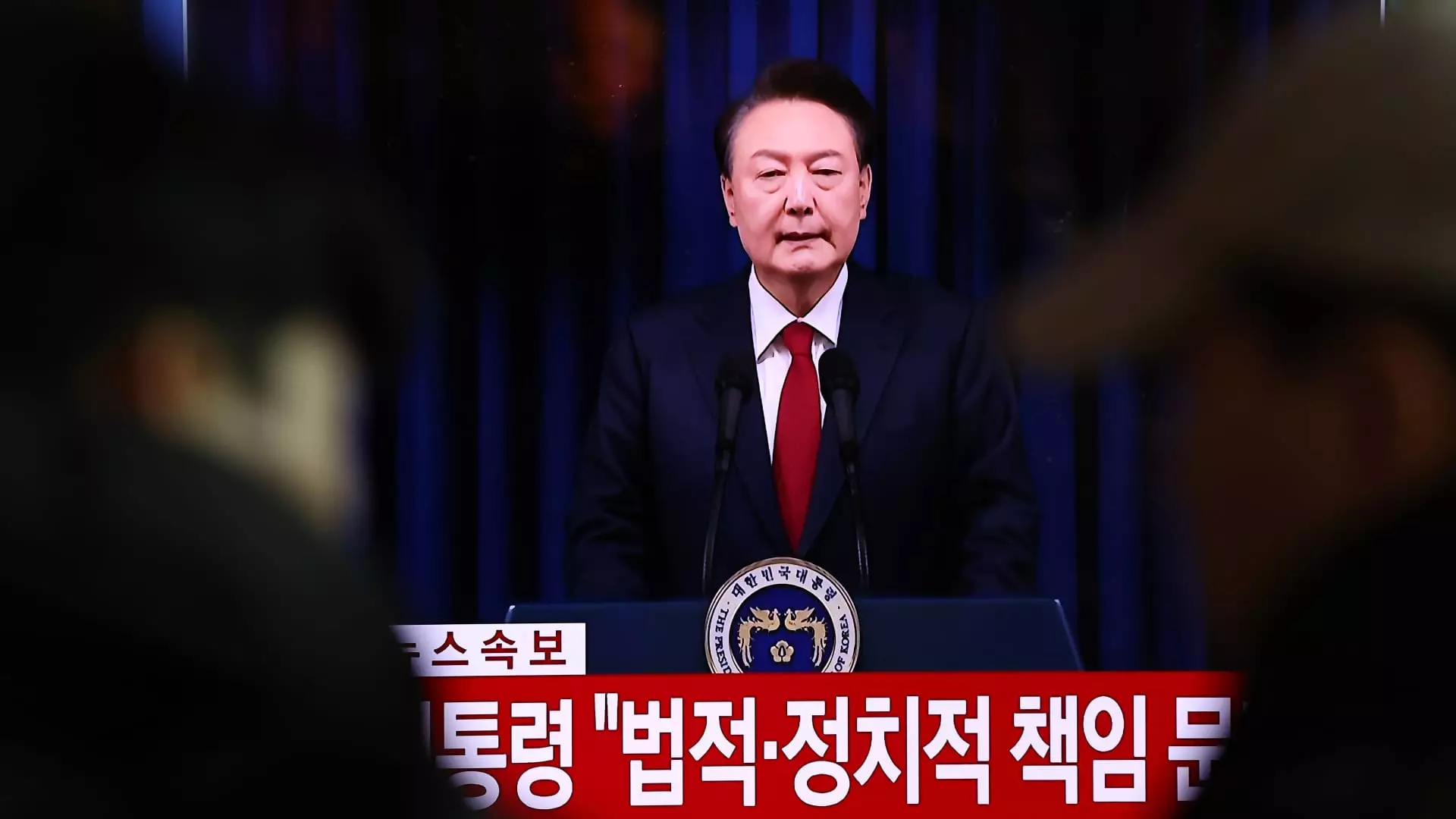The recent impeachment of South Korea’s President Yoon Suk Yeol marks a significant moment in the nation’s political landscape, reflecting both the fragility of democratic institutions and the pervasive divisions within the ruling party. Yoon’s removal was catalyzed by a dramatic misstep: his brief imposition of martial law in early December, a controversial move that he claimed was necessary for “protecting the constitutional order.” Despite being revoked within a mere six hours, the incident ignited massive public outcry and led to a swift decline in Yoon’s popularity—his approval rating plummeting to an alarming 17.3%. This situation underscores a pivotal point: a leader’s capacity to maintain authority can be severely undermined by one ill-conceived decision.
The impeachment vote that transpired on Saturday was facilitated by a noticeable shift within the ruling People Power Party (PPP). Initially, a motion had been introduced on December 7 but failed to secure the necessary votes, primarily due to the defection of allied lawmakers. However, the waning trust in Yoon became evident when Han Dong-hoon, the party’s leader, publicly supported the move towards impeachment, recognizing the mounting pressure from both opposition lawmakers and his own party members. This quick pivot signals a fracture in Yoon’s base and showcases how rapidly political allegiances can shift in moments of crisis. The dissolution of support from his party not only accelerated the impeachment process, but it also reflected broader dissatisfaction with Yoon’s leadership style and decision-making.
The Context of Martial Law
Yoon’s declaration of martial law, a move reminiscent of South Korea’s authoritarian past, has raised eyebrows and rekindled anxieties about the state of democracy in the country. The justification he provided—fearing the rise of pro-North Korean groups—did little to quell the outrage. Critics argue that such a heavy-handed approach contradicts democratic norms and can lead to significant human rights abuses under the guise of national security. The outcry surrounding this decision underscores a growing cultural sensitivity towards authoritarianism in a region marked by historical struggles for democracy.
Political instability often breeds economic uncertainty. As Yoon’s presidency spiraled into chaos, initial responses from the market reflected this anxiety. Investors exhibited trepidation as political turmoil surfaced, giving rise to questions about the economic stability of Asia’s fourth-largest economy. However, analysts like John Woods from Lombard Odier suggest that observers are beginning to look beyond immediate political upheavals, focusing instead on South Korea’s underlying economic strength, particularly in sectors like technology and artificial intelligence. The International Monetary Fund has projected a 2.5% growth for the year, indicating that while political events are impactful, the fundamentals of the country’s economy might withstand these shocks.
The Road Ahead
With Yoon Suk Yeol now impeached, South Korea faces a crucial 60-day window for a new presidential election, a scenario that could pave the way for significant political change. As opposition parties regain momentum, the future governance of the nation remains uncertain. Will the next leader prioritize political reconciliation, or will they exacerbate existing divisions? The path forward requires careful navigation to ensure that necessary social and economic reforms are implemented without further destabilizing the country.
The impeachment of Yoon Suk Yeol serves as a poignant reminder of the fragility of democratic governance and the volatile nature of political allegiance. It brings to light the essential conversations surrounding leadership responsibility, citizen engagement, and the horrible specter of authoritarianism that looms ever so close in tumultuous times. South Korea, a nation built on resilience and progress, must now harness this moment to secure its democratic ideals and address the pressing needs of its citizens amidst an evolving political landscape. The imperative for unity and effective governance has never been clearer.

